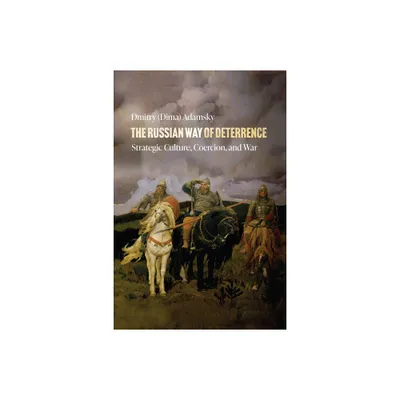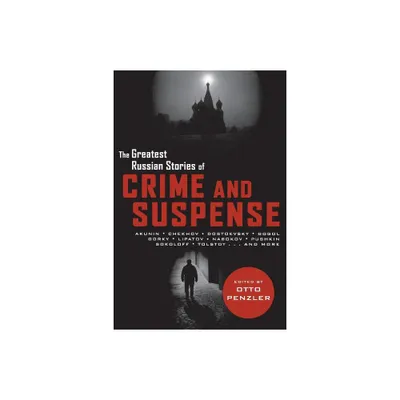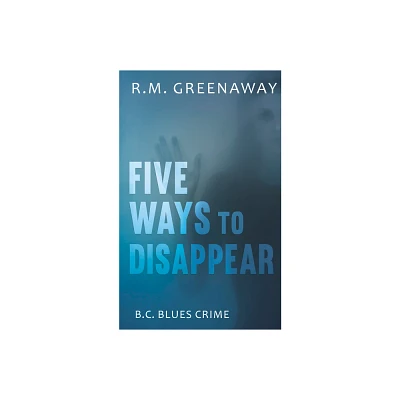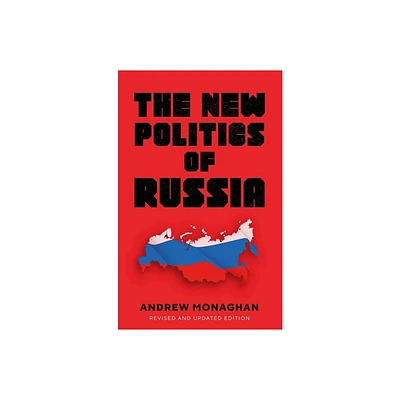Home
Russian Pulp: The Detektiv and the Russian Way of Crime / Edition 224
Loading Inventory...
Barnes and Noble
Russian Pulp: The Detektiv and the Russian Way of Crime / Edition 224
Current price: $54.00


Barnes and Noble
Russian Pulp: The Detektiv and the Russian Way of Crime / Edition 224
Current price: $54.00
Loading Inventory...
Size: OS
*Product Information may vary - to confirm product availability, pricing, and additional information please contact Barnes and Noble
The detektiv, Russia's version of the murder mystery, has conquered what in Soviet days loved to call itself 'the most reading nation on earth.' Most Russians don't read much Tolstoy, but they devour the lurid covers and cheap paper of the detektivs by the millions. Serials based on the works of two of the most popular authors (Andrei Kivinov and Aleksandra Marinina) have been hits of the last few TV seasons, their characters now a part of Russian everyday life. The ubiquity of the detektiv may puzzle Westerners, who may conclude that this is a post-Soviet import like McDonalds. Not so—Russia sprouted its own versions of 'penny dreadfuls' as soon as peasants came off the land and learned to read. The guardians of Russia's 'high culture,' however, were enraged by this pulpy popular genre and so contrived under the Soviets to supress it, making everyone read 'improving' and 'uplifting' literature instead. Russia's junk readers hung on, though, snatching up the few detektivs that made their way through censorship, until, in the Gorbachev era, the genre blossomed as the perfect vehicle for social criticism—the detektiv talked about social problems in a way that was exciting enough that people wanted to read it. When the Soviet Union finally collapsed, one of the few things left standing in the rubble was the detektiv—which now is sold on every street corner and read on every bus. The first full-length study of the genre, Russian Pulp demonstrates that the detektiv is no knock-off. Summarizing and quoting extensively from scores of novels, this study shows that Russians understand law-breaking and crime, policemen, and criminals in ways wholly different from those of the West. After explaining why solving a crime is always a social function in Russia, Russian Pulp examines the staples of crime fiction—sex, theft, and murder—to demonstrate that Russians see police officer and criminal, thief and victim, as part of a single continuum. To the Russians, both chased and chaser are products of human imperfection, separated from one another only by the imperfect laws of human creation. What both criminal and policeman seek—-but seldom find—-is the much rarer quality of justice. Russian Pulp is intended for all students of Russia, from those making first acquaintance to those who have worked for years to understand this puzzling country and its people. Using the detektiv and its counterpart—the many mysteries and thrillers set in Russia but written by Westerners—as evidence, Russian Pulp demonstrates that Russians and Westerners view the basic issues of crime, guilt, justice, law, and redemption in such fundamentally different ways as to make each people incomprehensible to the other. At the same time, however, Russian Pulp also demonstrates that Westerners and Russians alike share a passion for literary gore, pulp fiction thrills, and the deep furtive pleasures of junk fiction.


















